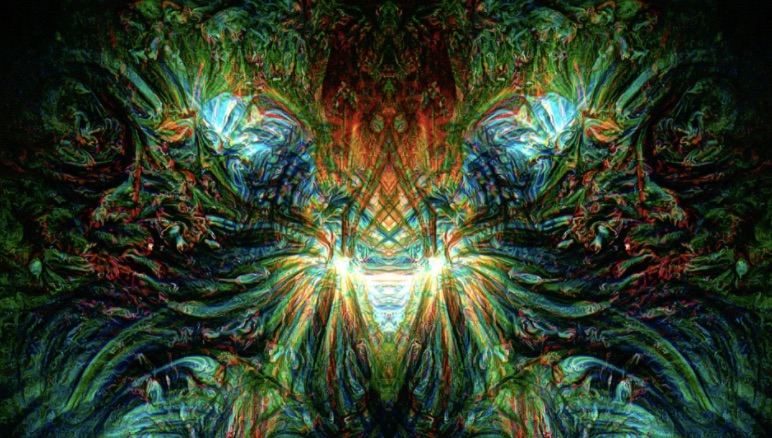The Curious Mind
"[I felt as though walls were] crawling with geometric hallucinations."
"What arrests my attention is the fact that this space is inhabited. You break into this space and are immediately swarmed by squeaking, self-transforming elf-machines ... made of light and grammar and sound that come chirping and squealing and tumbling toward you."
Terence McKenna, psychedelic aficionado
"There were little cartoon cats going round, and ice cream cones. [And then] it felt like I was with deceased, amazing and really important people."
"I was surrounded by people who were influential, but cared about me and wanted me to be there and be safe."
"It was an oddly emotional feeling. It was very abstract."
Michelle Ross, Neuroscientist
"There was this creature that was, like, dancing around me and it looked like the thing from the Nightmare before Christmas."
"As it danced around it would shape-shift and spit out these colours."
User-report

Researchers and scientists, one and the same, have questing minds, wanting to know everything about anything. The more obscure, the more tantalizing. Not only do they want to unlock the mysteries of nature in all her glorious manifestations, but they would also like to know more about something we all have and treasure, that some of us make good use of and others fail to, but it is so indispensable that we need it to exist: our minds.
In researching our minds there are corners of experience that don't readily come to mind to most people, but evidently did to behavioural biologist Roland Griffiths of Johns Hopkins University in Baltimore, Maryland. This not a new focus for this scientist, he has previously taken the time and energy to focus on psychedelic substances capable of distorting the patterns perceived by our minds to produce "mystical-type and near-death experiences."
The university has a robust program of various studies for which they advertise and search out willing study participants. In this particular instance the study involves the type of hallucinogenic effects produced by the drug Dimethyltryptamine, better known as DMT, considered by those in the know -- in this instance another researcher, the "spirit molecule".
Volunteers are invited to complete an online survey should they have experienced "encounters with seemingly autonomous beings or entities after taking DMT". What's in it for potential study participants? Well, possibly learning how best to enhance those peculiar, other-worldly hallucinations experienced with the use of DMT. Possibly an eventual 'guided-tour' experience?
Dimethyltryptamine is a naturally occurring molecule present in many plants and animals, one that since the 1930s has been synthesized. The substance is often smoked and those using it experience close to immediate hallucinogenic effects. Terence McKenna, throughout his long fascination with this class of drugs reports that within a minute of taking his first puff, he was immediately plunged into hallucinations.
His fey description of his experiences with DMT is just what the researchers are looking for.
Psychiatry professor Richard Strassman with the University of New Mexico administered close to 400 doses of DMT to 60 volunteers in a ground-breaking psychedelics study in the early 1990s. Among those who were his test subjects many described intense interactions with non-human beings. These beings were variously described as "jokers", clowns, aliens or "helpers", as reported in the book DMT: The spirit molecule.
"Basically, we are very curious about the phenomena of entity encounters."
"What is happening? Are there similarities across experiences? Can the phenomena be quantified in a meaningful way?"
"Perhaps this foundation [could] eventually lead to studies that are able to answer the question about whether these experiences are hallucinations in the traditional sense of the word, [or] whether they are in fact 'breakthrough' experiences that lift a veil to another universe or into other parts of our own universe."
Alan K. Davis, Ph.D., study post-doc research fellow
 |
| The Johns Hopkins University Homewood campus. |
Labels: Bioscience, Psychedelic Drugs, Research

0 Comments:
Post a Comment
<< Home